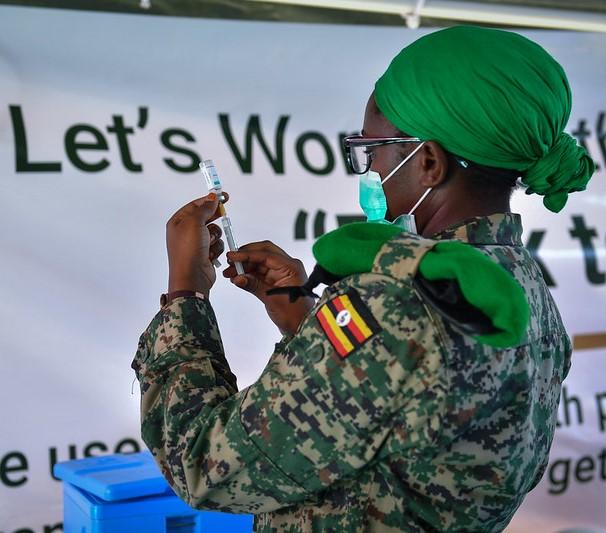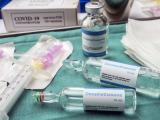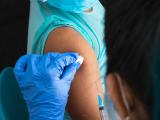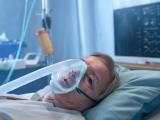Ahead of the G20 leaders meeting in Rome this weekend, the World Health Organization (WHO) today unveiled the new plan for the ACT Accelerator and asked leaders from developed countries to fully fund it to bring the COVID-19 pandemic under control.
In other developments, UNICEF called for urgent steps to tackle a projected syringe shortage, and African health leaders said only five countries in the region will meet the goal of vaccinating 40% of their populations by the end of the year.
Fully funded plan for ending pandemic
At a press briefing, WHO Director-General Tedros Adhanom Ghebreyesus, PhD, said the ACT Accelerator has worked to provide more equitable access to COVID-19 vaccine, treatments, and diagnostics. "But the ACT Accelerator has so far been prevented from fulfilling its potential by severe supply and financing constraints," he added.
Tedros pointed out that the COVID-19 cases are increasing again after 2 months and that the pandemic persists largely due to inequitable access, with 80 times more tests and 30 times more vaccines distributed in high-income countries than in low-income countries. Oxygen and protective equipment are still in short supply in some countries, and lack of testing leaves some countries in the dark about how the virus is circulating and if any new variants are emerging.
He called on leaders of G20 countries to make political and financial commitments to end the pandemic and prevent future threats. "We are at a decisive moment, requiring decisive leadership to make the world safer."
Aside from fully funding the ACT Accelerator's $23.4 billion price tag for the next year, he called on the group to support a legally-binding treaty on pandemic preparedness and response and support a Health Threats Financing Board that would be backed by a Financial Intermediary Board and hosted by the World Bank.
Syringe shortage looms
In a related development, UNICEF today warned that reaching new vaccination targets—assuming an unlimited supply of vaccine—could lead to a shortage of 2.2 billion auto-disable syringes. That syringe type locks automatically to prevent reuse, and WHO and UNICEF guidelines require them.
UNICEF said the auto-disable syringes are critical for safety and that that low- and middle-income countries will bear the brunt of the shortage. The group has already secured 3 billion of the syringes since 2020, which included a GAVI-funded stockpile to prepare for COVID-19 vaccine deployment. It added that so far, the supply has been sufficient.
The expected shortfall is related to higher demand, disruptions to freight and supply chains, and an unpredictable vaccine supply, UNICEF said. It called for six urgent steps, including expanded access to both standard 0.5 mL auto-disable syringes as well as the 0.3 mL syringes for Pfizer-BioNTech vaccine.
Some African countries including Kenya, Rwanda, and South Africa have already experienced delays receiving syringes, Matshidiso Moeti, MBBS, who leads the WHO's African regional office, said today at a briefing.
"The looming threat of a vaccine commodities crisis hangs over the continent. Early next year COVID-19 vaccines will start pouring into Africa, but a scarcity of syringes could paralyze progress."
Africa's unmet vaccination goals
In an update on the region's immunization progress, Moeti said Africa has now vaccinated 6% of its population and faces a 275 million dose shortfall for meeting the goal of vaccinating 40% of the population by the end of the year.
So far, only five countries have met or will meet the goal: Seychelles, Mauritius, Morocco, Tunisia, and Cabo Verde.
Moeti said some countries still need to improve their readiness to launch the vaccine campaigns and that the WHO is making emergency support missions to five countries to speed up and improve their rollouts. Plans are under way for similar missions to another 10 countries by the end of the year.
More global headlines
- The partnership for Maternal, Newborn, and Child Health yesterday announced $32.1 billion to help boost health services disrupted by COVID-19 such as family planning and nutrition. Nearly 60% of the funding came from low- and middle-income countries, with the rest coming from high-income countries and a private foundation. About half of the money will address COVID-19, with the rest targeting other health services.
- In outbreak developments, Russia's daily cases topped 40,000 for the first time with plans underway to relaunch its vaccination drive to boost low uptake, Ukraine's capital Kyiv is tightening restrictions as cases surge again in the country, and Singapore is monitoring what it says is an unusual COVID-19 spike.
- The global total today rose to 245,366,553, with 4,977,525 deaths, according to the Johns Hopkins online dashboard.






















